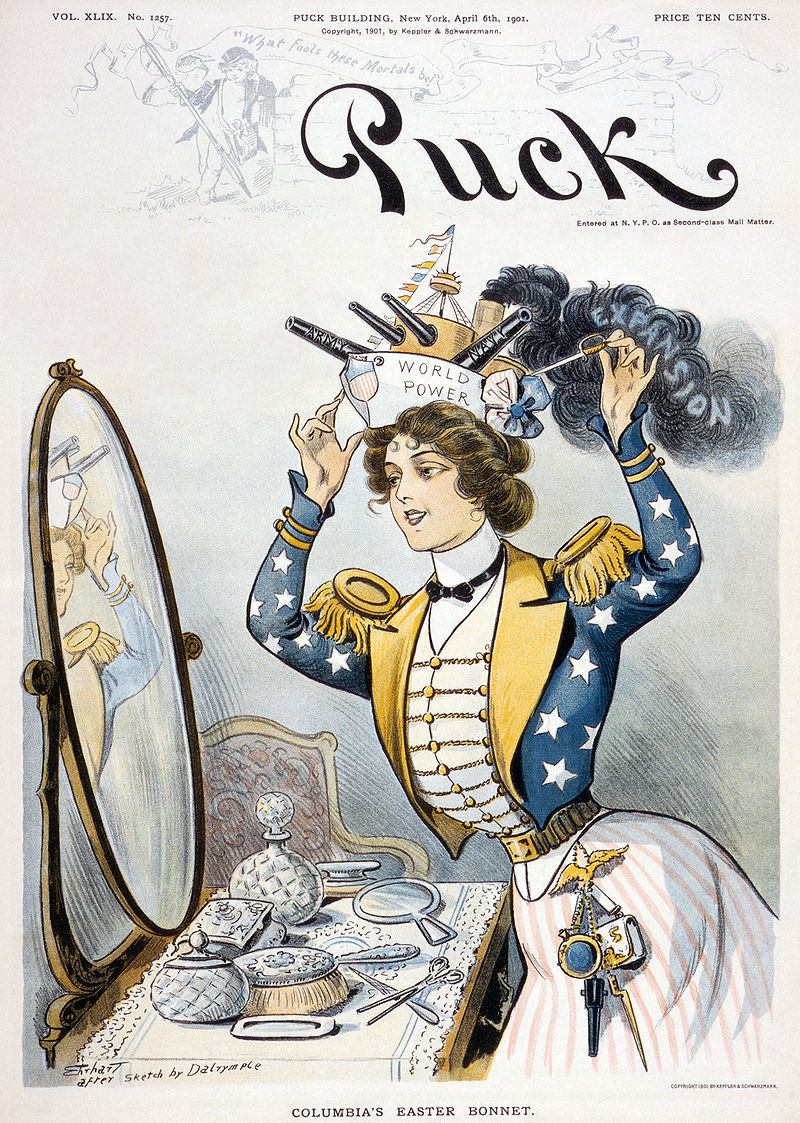
Columbia, personification of the United States, wearing a warship
bearing the words "World Power" as her "Easter bonnet" on the cover of
Puck, 6 April 1901.
My Web page on
Gender Trouble is now moved to gender_trouble_01.html
Japanese
portal page on Butler's Gender Trouble is in gender_trouble.html

Columbia, personification of the United States, wearing a warship
bearing the words "World Power" as her "Easter bonnet" on the cover of
Puck, 6 April 1901.
Copyleft, CC, Mitzub'ixi Quq Chi'j, 1996-2099
☆
 ☆
☆